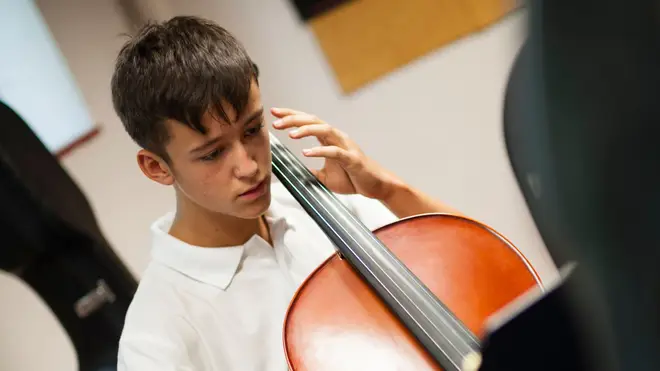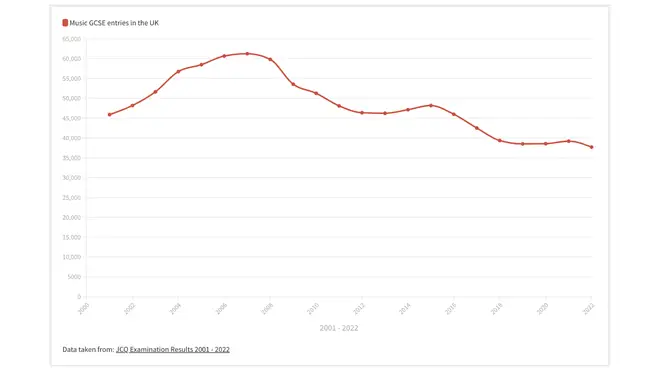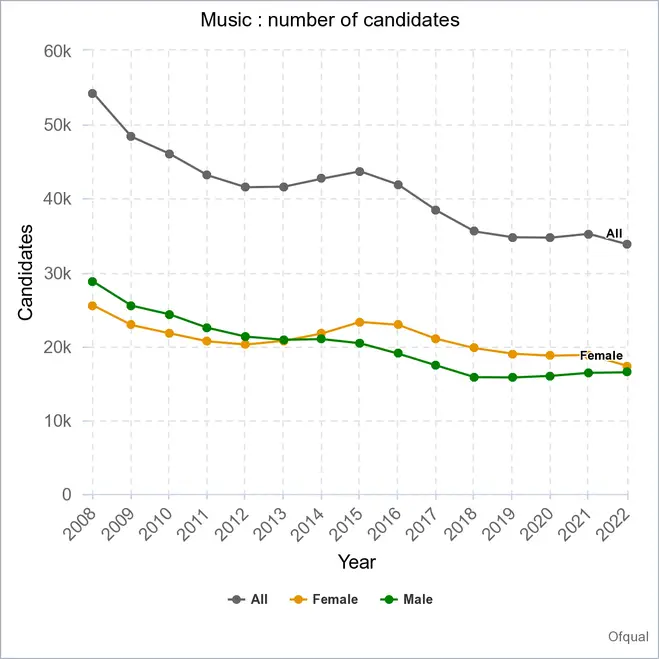On Air Now
Classic FM Breakfast with Dan Walker 6:30am - 9am
25 August 2022, 15:01 | Updated: 25 August 2022, 15:39

As students across the UK receive their exam results, the JCQ documents the lowest number of music GCSE entries since their public records began.
The number of students taking music GCSE across the UK in 2022 is at an all-time low.
Since the start of Joint Council for Qualifications (JCQ) records at the beginning of the 21st century, 2022 saw the lowest ever number of entrants for the creative arts subject.
Ahead of GCSE results day this morning, Geoff Barton, General Secretary of the Association of School and College Leaders warned that this “long-term decline” in the creative arts subjects was “worrying”.
According to JCQ’s results data released this morning, music GCSE entry figures have fallen by 3.8 percent since last year. In the last decade this is a 19 percent decline, and a 27 percent drop since 2010.
In a statement on the ASCL’s website, Barton wrote, “This [decline] is driven by government performance measures which favour traditional academic subjects at the expense of other subjects, and funding pressures which make small classes difficult to sustain.”
Read more: A-level music entries rise by 4 percent, in first uplift in over a decade

Deborah Annetts, ISM’s Chief Executive, congratulated GCSE music students on their results in a statement released earlier today day, but also expressed great “concern” over the falling music entries. Annetts also highlighted the “staggering” 27 percent fall in music entries since 2010, citing this as the year of the EBacc introduction.
In 2010, the English Baccalaureate (EBacc) was introduced as a “set of subjects at GCSE that keeps young people’s options open for further study and future careers.”
Students, usually aged 14 to 16 years old, are required to take seven GCSEs, English language and literature, maths, the sciences, geography or history, and a language, leaving arguably less room for the creative arts subjects.
In a statement, Annetts said that the EBacc must be “urgently reformed or scrapped to prevent further damage to our arts subjects.”
She continued, “Our analysis shows the size of the challenge facing the refreshed National Plan for Music Education, as it aims to ensure all students have access to high quality music education in school.”
Read more: Schools should offer at least ‘one hour of music a week’ – new music education plan revealed

It wasn’t just music that saw a decline in the number of GCSE entrants. Creative arts on the whole suffered with entries falling in drama by 6.4 percent, design and technology by 5.4 percent, and art and design by 2.1 percent since last year.
Barton is concerned this continuing declining trend of GCSE uptake in the creative arts could mean these subjects will “become the preserve only of families who are wealthy enough to afford private schools and clubs.”
Amid the current cost of living crisis in the UK, it is being reported that schools may be expected to absorb increased energy costs. Schools minister Will Quince has said “some schools will be facing pressure” amid energy bill struggles this winter, but told Sky News, they must stay “open five days a week”.
Barton has urged the government to “make state education a priority and fund it properly” or risk the creative arts “largely disappear[ing] from the state education system”.